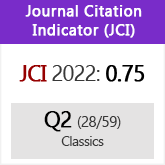«Las ranas pidiendo rey»: origen y evolución de una fábula política
DOI:
https://doi.org/10.3989/emerita.1984.v52.i1.712Abstract
Phaedrus places this fable (I 2) within a framework in which Aesopus is the teller of it to the Athenians annoyed by Pisistratus' tyranny. His advice to them is to resign, lest a worst tyranny arrives, as it happened to the frogs. The author understands this doctrine as of cynical origin, and he quotes several cynical fables whose intention is the same. According to the author, the cynics are the ones who created the fable of the frogs from a number of precedents expounded in this paper. He reconstructs, as much as possible, the metrical traces of the original fable of the 3rd century B. C., preserved in the version of the Augustana collection. And he also draws up the stemma of the different versions of this fable.
Downloads
Download data is not yet available.
Downloads
Published
1984-06-30
How to Cite
Adrados, F. R. (1984). «Las ranas pidiendo rey»: origen y evolución de una fábula política. Emerita, 52(1), 25–32. https://doi.org/10.3989/emerita.1984.v52.i1.712
Issue
Section
Articles
License
Copyright (c) 1984 Consejo Superior de Investigaciones Científicas (CSIC)

This work is licensed under a Creative Commons Attribution 4.0 International License.
© CSIC. Manuscripts published in both the printed and online versions of this Journal are the property of Consejo Superior de Investigaciones Científicas, and quoting this source is a requirement for any partial or full reproduction.All contents of this electronic edition, except where otherwise noted, are distributed under a “Creative Commons Attribution 4.0 International” (CC BY 4.0) License. You may read here the basic information and the legal text of the license. The indication of the CC BY 4.0 License must be expressly stated in this way when necessary.
Self-archiving in repositories, personal webpages or similar, of any version other than the published by the Editor, is not allowed.














